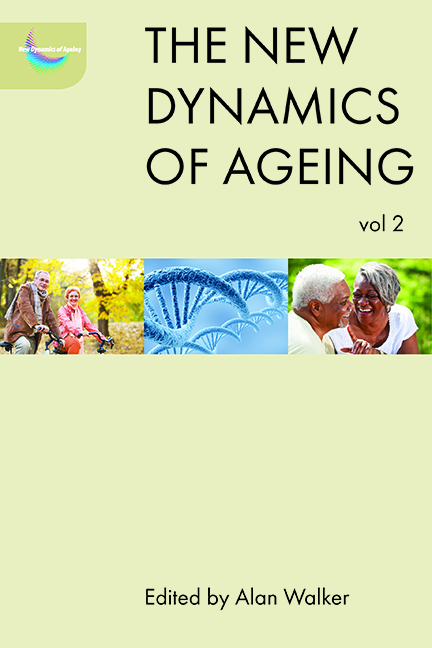fourteen - Narrative representations of the self: encounters with contemporary visual art
Published online by Cambridge University Press: 13 April 2022
Summary
Introduction
How and why older people create narrative identities in response to encounters with contemporary visual art is explored using the results from ‘Contemporary visual art and identity construction – Well-being among older people’, a 28-month study (May 2009-October 2011) that examined the responses of 38 older people who were taken to three contemporary visual art galleries in North East England, UK. Participants visited the galleries in pre-existing groups – a writers’ group, an older person's advocacy organisation, a film club for the over-60s, a charity providing activities for older men and a group from a sheltered accommodation unit. Baseline interviews provided background information about participants including their engagement with art and culture, the art forms that they preferred, as well as general demographic information, such as marital status, social networks, education and employment history. The groups visited galleries three times over the duration of the project – each visit included a guided tour, and then participants discussed their impressions and reflected on what they had seen in focus groups.
The project's overall aim was to determine how older adults consume contemporary visual art as content for identity construction practices, and how that relates to wellbeing. This chapter explores the influence of encounters with contemporary visual art on the construction of older persons’ narrative identities, and how this involves the process of positioning in respect to wider societal meta-narratives, specifically those to do with age, class and gender.
Theoretical framework
This section provides an introduction to the theory that has been used to support the analysis of the data. It starts with a description of narrative identities and then considers the role of meta-narratives in identity formation. Following this is an account of how negative meta-narratives of ageing may influence the self-construct of people in later life.
Recent approaches to understanding identity (De Fina and Georgakopoulou, 2012) emphasise its social nature and its narrative component. As McAdams (1993, p 5) states:
Identity is a life story. A life story is a personal myth that an individual begins working on in late adolescence and young adulthood in order to provide his or her life with a purpose.
- Type
- Chapter
- Information
- The New Dynamics of Ageing Volume 2 , pp. 263 - 284Publisher: Bristol University PressPrint publication year: 2018



